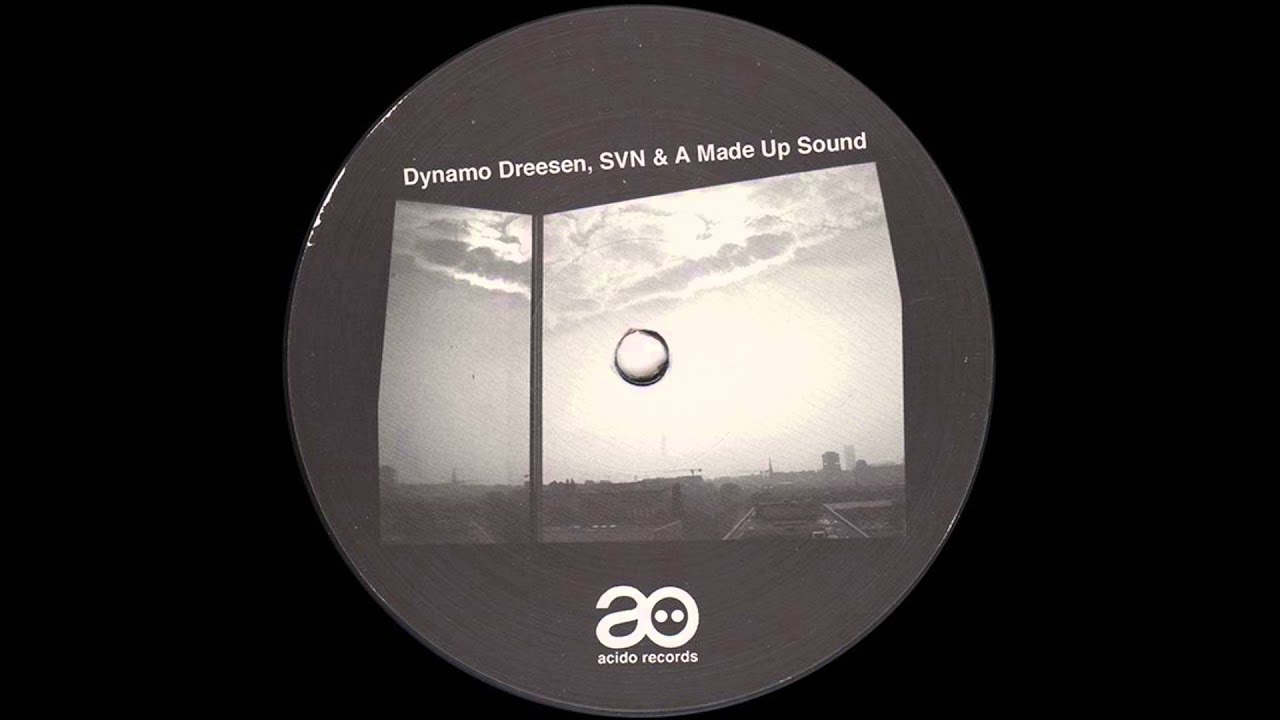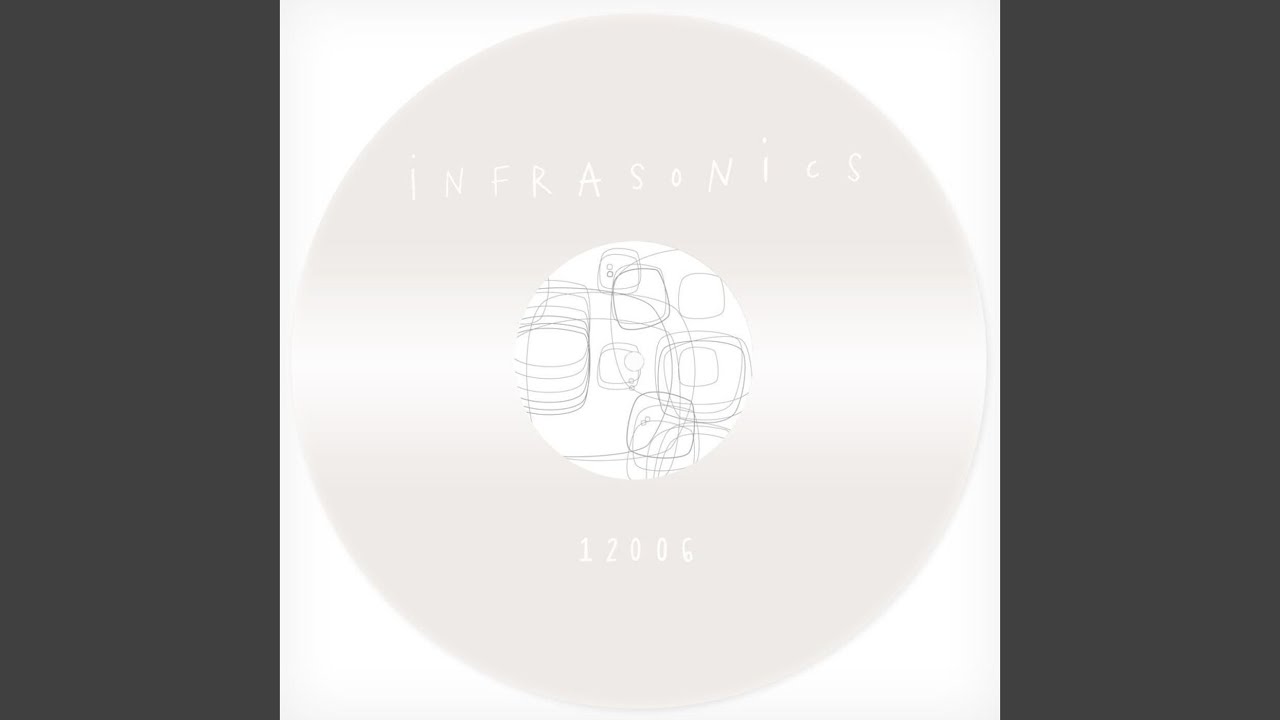Scrolling down, the more attentive among you will by now have noticed that this is an edition of Hyperspecific with a difference – not only is it the first in just shy of six months, but you are also stuck with me for this latest round-up of recent happenings in electronic music while Rory is busy completing his studies in a field with far greater prospects of stable income than this writing lark. With such a lengthy gap since the last column, compiling this month’s selections would have been a somewhat impossible feat without a limit of the last four or so weeks, so below you can find some of the best of what electronic music, in all its loose forms, has had to offer in the month of August.
In his last column, Rory extended the purview of Hyperspecific to include various radio shows and mixes owing to the ever-growing online platforms through which we can discover and access emerging scenes and talent. Extending this further from the sole documentation of release highlights, and perhaps against Rory’s better judgement, it also makes sense though to use this column to look at the ways specific club nights and venues are shaping our discovery and experience of electronic and club music in their most physical forms – after all they are categories of music born from the idealistic vision of the club as a hedonistic, communal setting for escape from ‘normative’ culture.
The recent news that the UK has lost more than half of its nightclubs in the last 10 years has been difficult to miss under the hail of hastily-pitched thinkpieces and downbeat discussion threads. The reasons for this – from the rise of ‘event clubbing’ to spiralling property prices to tougher security measures to the rising cost of living – are complex and require much thinking about on the part of those truly in the know: the DJs, the promoters, the owners, the seasoned club-goers. In light of this news however, it seems more necessary than ever that this column also takes a look at those who are actively pushing for a more interesting landscape in the future of the UK’s clubbing scene against the increasingly diluted options offered up by more established brands, be that through who they book, where they hold their events or how they position their events aesthetically and musically.
Over the Bank Holiday weekend, The Hydra in Wapping assembled a stellar line-up that took in Jeff Mills, Robert Hood, Helena Hauff, Objekt and many more. Everybody delivered, as expected, but the venue fell somewhat short owing to the lack of ventilation and extreme heat – the heavy drip of sweat condensation didn’t make for a particularly good accompaniment to Objekt’s 7am set. Thankfully his selections more than made up for that. The organisers have since issued a statement to say that this is an ongoing issue that can only be solved by trial and error and, while I still have faith that this could be solved and the venue become a more important space in London’s nightlife, perhaps a more relaxed capacity would have solved this problem somewhat, for now.
Mumdance and Logos’ weekly Different Circles parties, the first summer series of which came to an end on Sunday, have been a prime example of how we can go beyond what has become the norm in creating club experiences – watching Deadboy and Mr Mitch go track-for-track and Beneath play through a Funktion One system in the very dark back room of a Dalston pub last month wasn’t the usual Sunday fare and that, coupled with consistent, on point bookings, has made it a success, so more of this kind of exploration is most welcome. All of this leads me nicely onto…
Tropical Waste – The Waiting Room, Stoke Newington, August 14
A bi-monthly club night in the basement of The Waiting Room on Stoke Newington High Street, Tropical Waste celebrated its first birthday in May with a night of back-to-back sets from some of the finest talent operating within London’s club scene, all of whom representing various collectives – Her Records, Gang Fatale, Endless – that are all playing their part in offering that much-needed alternative to the crowded and increasingly safe clubbing landscape.
The first edition of Tropical Waste since that birthday celebration sees Seb Wheeler and IYDES, the pair behind the night, assemble an even stronger, ever dynamic set of names, this time from further afield. Arriving shortly after midnight, Kamixlo, representing the riotously fun Endless crew, is, as ever, tearing through a set with its touchstones rooted in hip-hop, kuduro, grime, dancehall and an assortment of other sounds. I first witnessed Kamixlo play last month at Dance Tunnel for FWD>>, where I was able to experience, first-hand, the unrelenting, primal power of his own productions such as ‘Paleta’ and ‘Mata Lo’, with the tiny booth filled with friends and booze (as a very pissed off sound guy looked on). Coming away from that show and off the back of a selection of mixes from the rest of the Endless crew, I’ve been hard placed to pinpoint a time I last felt the dizzying rush of excitement that Kami and co. have left me with. With his set whipping up a fevered energy in the room at Tropical Waste barely before 1 AM, there’s only one way the night can go from here.
Staycore – 14th August 2015 by Nts Radio on Mixcloud
One of Tropical Waste’s greatest achievements in its short time has been the ability to seek out and then put on fresh talent from overseas for their UK debuts. Lotic, well before the release of his Tri Angle EP earlier this year, played his first UK show in this Stokie basement and tonight, Dinamarca, of Sweden’s Staycore collective, steps up to play his first show. Having found it difficult over the last couple of years to reconcile my appreciation of SOPHIE and some aspects of PC Music with my hatred of those that layer their love of pop music in irony and ‘LOLs’, Dinamarca’s set should leave me in a relative quandary, as he moves from the Korn remix of Rihanna’s ‘Bitch Better Have My Money’ to an edit of Alice Deejay’s much-maligned ’90s hit ‘Better Off Alone’ (both of which can be heard in Staycore’s recent NTS show above). It’s too much fucking fun to bear doubting though and I’m far too preoccupied by the sight of a barely dressed Arca dancing up the walls to care. Kablam, representing yet another vital club collective in the form of Berlin’s Janus, follows with a smattering of gabber (including an outing for Rotterdam Termination Source’s ‘Poing’) alongside her own edits and productions before the night is brought to a head by the Tropical Waste crew playing back-to-back with UK producer Grovestreet and Tyree’s ‘Nuthin Wrong’ rings out past 4 AM as security insist on shutting off the music to protests from the hardened few that remain to the end. You don’t get that from the sea of bland, overpriced warehouse parties at ‘Location TBA’.
Kuedo – Assertion Of A Surrounding Presence
(Knives)
With only one release to his name since 2011’s game-changing Severant, the first and only long-player thus far from Jamie Teasdale’s Kuedo project, the announcement last month of Assertion Of A Surrounding Presence was a very welcome one. The second release from Teasdale’s new Knives imprint, following on from the metallic, bass-consumed excursions of the label’s first release from J.G. Biberkopf, the reference points are laid bare, at once drawing on the aesthetics of new-age music – much like M.E.S.H.’s recent debut album on PAN – and Sci-Fi, audibly, visually and thematically. Its greyscale artwork and titling (‘Border State Collapse’, ‘Event Tracking Across Populated Terrain’) appear almost clinical though the music itself is anything but. Assertion… doesn’t do too much to shake off the Blade Runner comparisons that formed much of the discussion around the debut Kuedo album. Opening track ‘Vertical Stack’, in particular, recalls that opening shot of an imagined Los Angeles in November 2019, flames rising from the rows of nondescript, towering buildings. Occasional sound FX and cinematic, sweeping chords, much like those of Vangelis’ opening gambit on the 1982 film, occasionally rise to the fore, offset against the din of distinctly ominous flutes.
Moving away from this though, there is more experimentation to be found here. ‘Eyeless Angel Intervention’ offers one of the release’s most striking moments apparently drawing on Japanese franchise Ghost in the Shell. Here, Teasdale doubles back on the footwork he previously dabbled in on Severant, taking the genre into off-kilter, ever more menacing directions reminiscent of the bleak framework that drove Jlin’s debut album, Dark Energy, earlier this year, making for one of the most bracing four minutes of music I’ve enjoyed all year. Another Eastern-based point of citation is gamelan on ‘Event Tracking Across Populated Terrain’ as Teasdale reconvenes with Vex’d collaborator Roly Porter building tension from the art of repetition as one simple bell-based tune rings throughout, occasionally joined by other components, a police siren here and a ghoulish sound effect there, joining together the rural tradition of Indonesian gamelan with the vision of an urban dystopia that runs throughout the entire release. Given less consideration and time, Assertion… could come across overwhelmingly bullish in its intention to conjure up dystopia in audible form, but, as Knives themselves put it, Teasdale’s production style comes “largely by virtue of unbending futurist focus”. On Assertion…, he unflinchingly and openly explores this in conjunction with the differing avenues of his bass-driven influences, and the results are chaotically and wickedly fascinating.
ANGEL-HO – Ascension
(Halcyon Veil)
Despite the announcement just a couple of days ago of a debut album from Rabit, the Texan-based producer is otherwise focusing his attention on his own recently-launched label, Halcyon Veil. The first release, a free download, comes from Cape Town producer ANGEL-HO of NON Records, a label that he co-founded just a few months ago with Richmond-based Chino Amobi and London-based Nkisi. The trio have been gradually amassing a clutch of material, mostly freely shared through Soundcloud, passing ideas amongst themselves shaped by their individual surroundings across three different countries, and Ascension marks ANGEL-HO’s first release away from their shared platform.
Throwing together an assortment of samples across five tracks, including the sound of a dog barking (which figures throughout opener ‘The Flux Of The Mind’), bursts of shattered glass and the ever-recognisable ‘Ha Crash’ that has formed the backbone of the vogue scene which stands out as a primary source of influence on both ANGEL-HO and NON Records’ musical and visual standing, the music, as he told <a href="http://www.thefader.com/2015/08/03/angel-ho-interview" target=“out">The Fader earlier this month, exists as an act of “resistance” against the colonial histories of the countries from which each of the label’s founders hails. It is as much an act of self-expression as it is a push against the kind of hegemonic, heteronormative, capitalist culture that overwhelmingly sells us limp standards of what is and isn’t normal. Ascension, in its scattershot, disorderly wall of sounds, cares very little for creating a palatable or ‘easy listen’ fitting in alongside the above-mentioned names of Kablam and the extended Janus crew including Lotic, Kamixlo and Endless, and also producers and DJs such as Total Freedom and Arca. All of which refuse to shy away from exploring their societal and political surroundings – not because they’re accessories to make their work appear more ‘interesting’ or ‘exciting’, but instead because the issues that they tackle are deeply ingrained into their daily experiences and their backgrounds. Ascension, with its deftly programmed, razor sharp beats and patent stimuli, is a vital, fierce and particularly intense listen and, most importantly, it’s absolutely packed full of ideas. It can also be downloaded here for free so what are you waiting for?
Florist – Marine Drive
(All Caps)
All Caps is a label that thrives on its versatility. Run out of Glasgow by local DJs Bake and Ryan Martin and distributed by go-to record store Rubadub, the pair have covered a fair amount of ground with the first seven All Caps releases – all of which are vinyl-only releases. The label’s first release, from Alex Coulton, in 2011 looked to bassline, UK Garage and straight-up house as reference points, while in 2012 the pair issued one of the first releases from the now established Night Slugs affiliate Helix, its lead track offering up a bare bones drum workout, one of the most effective DJ tools to see release in recent years. Other releases have come from established names such as Kowton and Julio Bashmore (collaborating as Ekranoplan). Having previously looked to Canada last year with their fifth release in Mood Hut affiliate Bluntman Deejay’s Esoteric (Real) EP, this latest offering from All Caps once again taps into that hazy, sun-soaked quality that is so synonymous with the ‘Mood Hut sound’, calling up relative newcomer Florist to deliver two original tracks, backed with edits of each.
Anticipation for the release has been building steadily over the year owing to several unspecified delays and its appeal can very much be traced to just what has made the aforementioned Mood Hut and its associated sound such a mainstay in its short existence. Lead track ‘Marine Drive’ is rooted around 90s rave breaks, a sample many will historically associate with a grittier, more substance-enhanced sound than can be found here – an accompanying message with the release certainly draws on the sample’s background, positioning it as “An elegy to the spirit of the Sunrise Midsummer Party held at White Waltham Airfield – aka Ecstasy Airport”. Paired with dainty melodies and relaxed to a considerably lower BPM than that which it is referencing however, ‘Marine Drive’ taps into a more innocent kind of hedonism; less Ebeneezer Goode, more Ebenezer Howard. The entire release is refreshingly minimal and built on a few simple components, the lead track driven by the knowingly pastiche vocal snippets of a radio DJ (“EXCLUSIVE!”). Over seven minutes, ‘Final Bounce’ pairs little more than a paper-thin beat with the same recurring, lush synth work, charmingly bringing to mind a sun-hued Instagram filter in audio form.
Dynamo Dreesen, SVN & A Made Up Sound – Acido 20
(Acido)
The 20th release on German label Acido sees its founder Dynamo Dreesen teaming up with frequent collaborator, SVN, as well as, for the first time, the ever-reliable Dave Huismans, aka A Made Up Sound, who is currently on particularly searing form as evidenced by his recent Archive III EP, the recording of a back-to-back set alongside Peverelist at Dekmantel and the previews for two forthcoming self-released EPs which range from oppressive dubbed-out techno to an eccentrically rousing synth jam. Across three tracks, all of which are untitled, each of the trio’s respective production chops can be picked out, though that’s certainly not to say that Acido 20 lacks the necessary synergy between them all to successfully carry off a collaborative EP. While none of these tracks particularly seem to be built with the club in mind, the A-side, courtesy of Dreesen, is the most dancefloor-indebted of the three, driven forward by simple, four-four kicks and the kind of sharp minimalism that will draw a listener in to the end by doing as little as possible – there is no surplus here whatsoever.
The first of the B-side’s two cuts is a less straight-up affair – where the A-side’s head appears to be firmly on the dancefloor, the second of the three, from SVN, is a more introverted offering with its irregular drum pattern and eyes down modulated sonics tracing a far more sinister path. Retreating into itself entirely, the final track from AMUS appears to channel the broken, more experimental excursions of his 2562 project, creating a paradox of spatial claustrophobia in its beatless repetition. Watch out for more beatless goodness from Huismans in the form of the October release of ‘Half Hour Jam On A Borrowed Synth’, a kitsch (in the most affectionate way possible), four-minute trip of unbridled madness that caused quite a stir opening Objekt’s set at Dekmantel early last month.
Spatial – Emergence #1
(Infrasonics)
Reviving his Infrasonics label for its first release since 2012, Matt Spendlove, aka Spatial, retraces much of what made his early work with the label so absorbing, an attribute that marked him out as an emerging producer back in 2008 and 2009 when dubstep was beginning its mutation period and grappling somewhat with overexposure. Spatial’s early work playfully combined the basic time signatures of that music, as well as the UK garage and various other strands of the UK hardcore continuum, with the grace and lucidity of ’90s techno and little has been heard from him since Infrasonics fell into a dormant state.
In the best possible way, Emergence #1 could have immediately followed his 2010 Infra004 EP in the most natural of successions. Its two tracks are, as ever, unfussy and skittish, exploring the intersection where various strands of UK-based bass music and US-originated techno cross over. Much like a number of releases featured in this month’s column, the key is minimalism – spacious, limber kicks repeat over and over, providing a bed for floaty, rubbery synths that naturally and gradually progress as, one by one, an element is either added, altered or taken away. On ‘HeLa’, all of the individual component parts can be crisply identified and picked apart, though occasionally a distorted chord is thrown into the mix leaving a little room too for the kind of irregularity that holds it all back from entering predictable terrain. ‘Referent’ is a sparse roller for heads down crew offering spaced-out synths that unfurl across the kind of sub bass that deserves to be played only on the most capable of sound systems. While this EP may largely find Spendlove looking back to his and Infrasonics’ origins, it is by doing this that he also ultimately takes steps forward, reshaping and updating a sound synonymous with his past to create something that makes just as much sense now as it would have had the label not been put on hiatus.
Beatrice Dillon – Face A/B
(Where To Now?)
Now more than 30 releases deep, many of which in cassette form, Where To Now? have been quietly busying themselves away for almost five years as a label, upholding an impressively frequent release schedule alongside a consistent, unwavering aesthetic that translates most obviously to the physical aspect of all their output through lovingly produced artwork. Beatrice Dillon last appeared on the label little under a year ago with Blues Dance, a 30-minute two-sided cassette release that name-checked GAS, Ricardo Villalobos and Basic Channel among its influences and positioned quirky, meandering experiments such as opener ‘Longing’ alongside Matthew Herbert-esque percussion jams like ‘Halfway’.
A shorter offering than Blues Dance, Dillon’s second release with the label is made up of three tracks that explore the more mutated techno outings of the previous release. The EP’s two lead tracks are formed from the same basic components, offering up two differing, but ultimately very similar takes on one idea. ‘Face A’ is aimed at the most open of dancefloors as scuzzy synths drive the track underpinned by untuned, almost shrill wails of sax – sounds irritating on paper but the results are oddly, hypnotically danceable. ‘Face B’ retains the skronk of the previous track’s sax as well as the clicking drum pattern on which it rests, but little much else taking proceedings into far deeper, headier territory opening up the space within the track and allowing more room for thought away from the unsettling clatter of all the various layers that make up ‘Face A’ – it’s the dub to the main offering that is ‘Face A’, a take on the same idea pared down perhaps for the less hardened or even more refined of listeners. Closing with ‘Sonnier (Walk In The Light)’, the EP steps into jazzier territory still and yet there is no sax to be heard here, just burbling, warped synths and a beat pattern that occasionally threatens to trip over itself. What’s most enjoyable about the release is how freeform and unrehearsed its three individual pieces seem on the surface, a raw quality that can sometimes be hard to capture when it comes to producing and recording electronic music. Better still, with an album expected some time in the future from Dillon, I’m hard pressed to actually pinpoint what to expect – if it’s as unpredictable as this, it could make for one of next year’s most intricately rewarding long-players.





